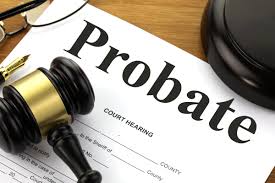FAQs About Michigan Probate: Your Top Questions Answered

Navigating the probate process in Michigan can be overwhelming, especially when dealing with the emotions and logistics of losing a loved one. Probate is a court-supervised procedure that ensures a deceased person’s assets are distributed according to their will—or, if there’s no will, according to Michigan law. Below, we answer some of the most frequently asked questions about probate in Michigan to help make the process clearer and less intimidating.
1. What is Probate?
Probate is the legal process of settling a deceased person’s estate. This involves identifying and gathering assets, paying off debts, and distributing what remains to beneficiaries. It’s essential for ensuring assets are properly and legally transferred. Learn more about the probate process here.
2. Do All Estates Go Through Probate in Michigan?
No, not all estates require probate. Some small estates with limited assets can avoid probate altogether through simplified procedures. Additionally, assets with designated beneficiaries (like life insurance or retirement accounts) or those held in a trust typically bypass probate.
3. What Assets Are Subject to Probate?
Assets solely owned by the deceased at the time of death generally go through probate. This includes real estate, bank accounts, and personal property not jointly owned or designated to a beneficiary. On the other hand, jointly held assets or those with beneficiary designations, like life insurance policies and retirement accounts, generally avoid probate.
4. How Long Does the Probate Process Take in Michigan?
The timeline for probate in Michigan can vary. Simple estates may be resolved within a few months, but complex estates can take over a year. If disputes arise or creditors need to be paid, the process can take even longer. Explore how we help streamline the probate process.
5. What is the Role of the Personal Representative (Executor)?
The personal representative (executor) is responsible for overseeing the probate process. This role includes notifying creditors and beneficiaries, managing estate assets, paying off debts, and distributing assets according to the will (or Michigan law, if there’s no will). If there’s no executor named, the court may appoint one.
6. What Happens if There is No Will?
If someone dies without a will, they are said to have died “intestate.” Michigan’s intestacy laws determine how assets are distributed, prioritizing spouses, children, and close relatives. Without a will, the court-appointed personal representative distributes assets based on these guidelines. We can help you understand Michigan’s intestacy laws.
7. Can Probate Be Avoided in Michigan?
Yes, probate can often be avoided with careful estate planning. Options like establishing a living trust, naming beneficiaries on accounts, or holding assets jointly can help bypass probate. Our team can help ensure your assets are structured to avoid probate.
8. How Much Does Probate Cost?
Probate costs depend on the size and complexity of the estate. Typical expenses include court fees, personal representative fees, attorney fees, and sometimes fees for appraisers and accountants. In Michigan, attorney fees may be based on an hourly rate or a percentage of the estate’s value.
9. Are There Ways to Simplify Probate for Small Estates?
Michigan has a simplified probate process for small estates. Known as the “small estate” procedure, this option allows heirs to collect assets without a full probate proceeding.
10. Can Probate Be Contested?
Yes, probate can be contested if there are disputes over the will’s validity or asset distribution. Common reasons for contesting probate include claims that the will was created under undue influence, fraud, or if there are concerns about the deceased’s mental capacity. Our team can guide you through the probate litigation process.
11. What are the Steps in the Probate Process?
- Filing the Petition: Opening probate and appointing a personal representative.
- Notifying Heirs and Creditors: Ensuring all interested parties are informed.
- Inventorying Assets: Collecting and valuing assets.
- Settling Debts and Taxes: Paying outstanding debts from the estate.
- Distributing Assets: Allocating assets according to the will or Michigan intestacy law.
- Closing the Estate: Filing a final accounting and requesting the court to close the estate.
We simplify the probate steps with personalized guidance.
12. Do I Need a Probate Attorney to Go Through Probate in Michigan?
While not legally required, a probate attorney can be invaluable, especially for complex estates or if conflicts arise. An attorney can ensure compliance with Michigan probate laws and help avoid costly mistakes. Contact our office today for a free consultation.
Final Thoughts
While Michigan probate can feel daunting, understanding the basics of Michigan probate law can make it easier to navigate. Taking steps to avoid probate, where possible, or being well-prepared if probate is necessary, can simplify the process significantly. If you’re facing probate and have questions, contact us on our website www.legacylegalbusiness.com or call our office at (616) 681-0100. We’re here to help make the probate process as straightforward and stress-free as possible.
